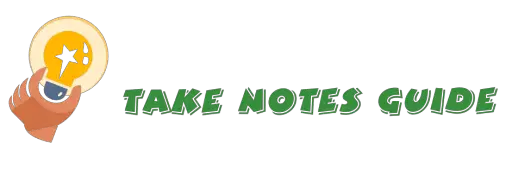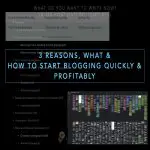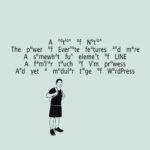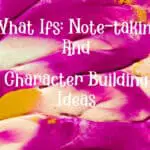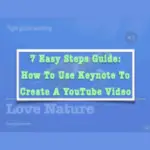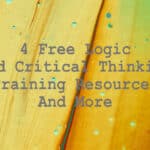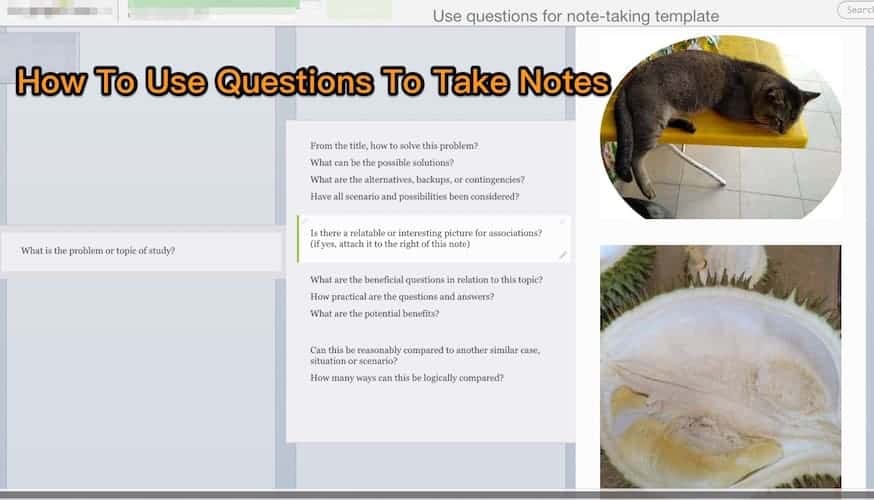
Would you be interested to find out how we may use questions to take notes? Hopefully, this post I came up with can assist you in this aspect. Asking questions and the right ones can be an important and integral part of learning and evolving to higher attainments. The more correct and useful questions we asked, the more we can learn by taking the right action to acquire the knowledge. The earlier you ask and are able to answer these questions, the better position you can be in examinations or testing situations. And what if one becomes so good at asking questions that he or she can prepare better exam questions and format than existing ones? I believe current examinations testing can be improved in various ways, including using technology to fairly evaluate certain performances and promoting creativity over bias and ignorance.
How to use questions to take notes?
- Read the title and ask any relevant questions
- Practicalities
- Relate to a story or picture
- Comparisons
- SLNR: (Solved, Like, Not-like, Recommendation)
Questions are essential to problem-solving. How to get this done? What can get around this problem? And once we solve one problem, we may continue to follow ones that arise or ask how we can improve in numerous ways. The more valid questions we ask ourselves and others, the more we prompt logical thinking and understandings. For those who wish to see the questions sample, please refer to One Sensible Way To Take Notes Effectively! for one way and an example of asking questions for note-taking.
Read the title and ask any relevant questions
This is perhaps the simplest and most direct way to effectively use questions to take notes. Spend about some minutes to prepare this before any class or lectures; The night before or an hour before you leave home for school are good time schedules for early preparation. The title can be a chapter title or any concept that will be covered for the coming lesson or lecture. Understand the title and ask away as many relevant questions as you can about it. The point is to ask questions from a blank slate or with your existing knowledge. With the correct questions, one may also realize what he or she lacks and what are the potentials, and where are the possible improvements.
Perhaps another method of asking questions is to just consider what you may find interesting for asking. This is an important way to study in my opinion because there are many fields of specializations one can delve into. A top student may be knowledgeable across the subjects, but can he match someone who spent much more time researching a particular niche topic? For example, commercial and industrial knowledge can be very much different or more profound than academic general information although they address the same subject or topic.
Practicalities
Practical knowledge that involves long periods of testing and brainstorming for solutions can be more valuable than just reading and memorizing book information. The kind of questions you asked here may differ widely from examinations types of questions, but this is also where you distinguish and set yourself apart from others. This method of taking such notes is simple: When you study or learn, keep questioning yourself WHY and HOW is this useful? WHAT are the benefits of this idea or information? Can you implement this for everyday use?
After a while, one may start to realize how much we learn may not even be needed in adult life, and we can even start early to put years of our teenage efforts into specialization expertise instead once we decided what we want to do in the future. For example, how useful are periodic tables and differential equations for everyday adult life to most people not working in relevant fields? To be honest, if your goal is to earn an honest and meaningful livelihood, what you need to learn and master may be very different from general education. For example, a successful driver or product creator may utilize very limited academic technical knowledge but mostly relies on current-day practical knowledge and testing results. That said, that does not mean we should disregard all educational learning. My suggestion for academic studies is to pay more attention to those that can apply and benefit us in the long run and are easily applicable in everyday life, such as common languages. With a good mastery of words, you may communicate well in daily life, becoming a writer, blogger, journalist, reporter, teacher, scriptwriter, screenwriter, announcer, host, lyricist, and even voice actor. So plan to have a good foundation in learning a subject that makes good sense for actually applying in later working life or even in retirement. Writers may read this for note-taking inspiration: How To Take Notes For Writers? Learn From These Tips!
For example, back in the days when some teenage students may not even own a basic Nokia phone, I remembered learning to message a classmate with the MS-DOS net send command to communicate during class for fun. This may seem relatively insignificant at that time and place, but what if we launch a series of questions pertaining to its usefulness, practical applications, and future potential? May we lay the foundation for social messaging and networking? Even if it was not a huge success then, perhaps a rudimentary structure and project can be a cause or seed for sprouting a future messaging app such as the multi-billion dollar worth WhatsApp?
Relate to a story or picture
Ask questions about how you can weave or integrate your notes into the last story plot you learned or watched. Perhaps you learned a new and intriguing or fun word (or idea/concept), then the questions you can ask and note down:
Is it possible you apply the word to the characters, the situation, or even expand into a whole story plot based on just this one word like the many modern movies with a memorable one-word title?
Is it possible to tell a story in five words or less with what you learned?
Is it possible to use that word in casual conversations or in your new novel?
You may base your questions on a movie, book story, or even a photograph and diagram. It is also a good idea to expand out your questions and notes from a relevant picture in that textbook chapter you are studying; In other words, is it possible to pull out the essence of that chapter just from this single powerful or meaningful picture image?
The advantage of this approach is in creating stronger memory links with a storyline or a meaningful visual than just remembering a random fact without any associations. Obviously, those with musical proclivity may ‘compose’ their questions and answer notes relating to the music they connect with. Remember, the more relevant questions you asked and understand the subject matter, the more you can know about it.
Say I want to bring some stress relief or fun entertainment to note-takers.
Questions:
What are the topics that may bring stress relief to readers?
Do I have a picture I can base writing upon?
Can I pull from a personal or true account I learned if possible?
How can I connect the piece to this article in a meaningful manner?
I decided to write a short piece to describe a personal and true account of a naturally lovable cat I met:

Title: The cat with one leg and tail hanging
This is an adorable cat with no name (owners did not give one) of an easy-going temperament who does not give a care about the world when sleeping on this table. With a leg and tail hanging (see picture), he is so relaxed and nonchalant that he simply ignores anyone who touches or speaks to him, at least initially. At times, he leaves the table to walk around, relieves himself nearby, and returns by himself. Regulars and newcomers may baby talk and meow him for love. He runs back when the owner calls for him while sleeping on the car road. He jumps into the car with the owners to travel here and back home of his own volition, he is smart in this way. Honestly, greedy and overly attached people should learn from this cat to be easily contented with a few simple pleasures.
Having read this short writing, perhaps you can generate some associative questions with your topic of study? Perhaps you can re-write the above paragraph by adding your study notes?
Exercise with an intriguing picture for taking notes with questions:

Title: Experience with durian
Durian (king of fruit?) is an exotic fruit with a unique sweet taste and sharp, hard thorns. It is interesting to note that subjectively some considered durian’s strong smell a terrible stench; If anything, it is one if not the most strong-smelling fruit there is. Durian is filling and consuming it can induce ‘heat’ in the body so traditionally saltwater is drunk with durian husk. People have become creative with different durian delicacies such as Durian Dodol (Glutinous rice durian cake recipe), Durian Cendol (Traditional iced sweet dessert with durian), durian popcorn, durian cake, puff & more. Also, some cats do eat durian.
Even the durian seeds and husks are excellent as a natural fertilizer and soil compost for black soil.

With this durian introduction:
What else can you do with durian in your situation?
Why and how a durian may benefit you and others?
Who would you surprise with a durian?
What possible recipes can you make that can introduce others to durian? Perhaps a durian cake or pastry? Or a durian smoothie?
Can you feed durian to cat and dog?
Can you come out with some associative and relatable questions to your topic of study or interest or re-write the above paragraph with associations? When using questions to take notes, one should prepare with some research into the complementary basis topic first.
Comparisons
Asking many comparative questions can help one to evaluate the validity and truth of the matter, in addition to better understanding. In fact, this type of question promotes the logical understanding that we can apply beyond just the subjects we are studying, including people and life situations. Again, you may read the same example here for comparative questions. This is one if not the most powerful way of questioning we can learn to better ourselves.
A simple example in life: When we see someone talking about honesty, integrity, moral strength, and harmony, but their behavior and various situations contradict what he said; This prompts the question: What he said before is not what he is doing now? Are his actions really consistent with his words? Why did he handle various situations differently or in a prejudiced manner? How did he compare up with another honorable person? Is he more selfish than selfless? We should also realize whether we or others can answer these questions objectively, and if unable to do so, what we can tell about ourselves or that person’s values and beliefs. We should sense the early warning red flags regarding people before it is too late.
How to easily create flashcards notes with questions and answers?
Here is a free resource students can leverage for studying and memorizing: Study Better: Zorbi Flashcards With Chrome And Notion Integration.
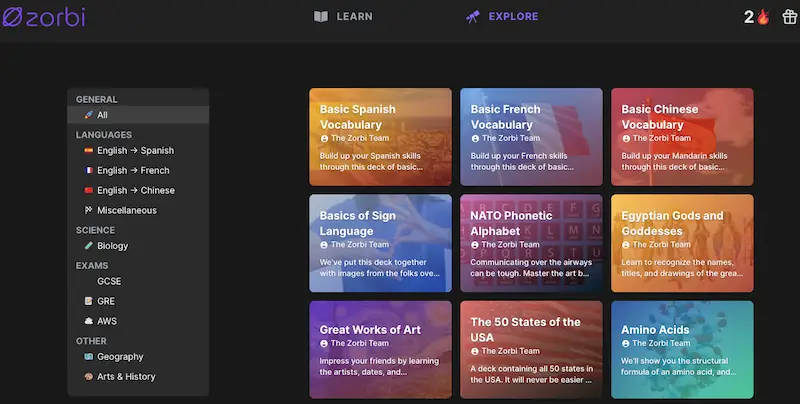
Simple problem-solving or topic study template

I have created this Gingkoapp template for your copy and personal use: Use questions for note-taking. (Ctrl or Cmd+Shift+I to insert image)
SLNR
SLNR (Solved, Like, Not-like, Recommendation) method may be a really good note-taking method tip that may change your note-taking today. These 4 pillar notes elaboration (SLNR) technique for any idea: From learning a word to general concepts.
- What problem does it solves, what benefits you get out of it, and others?
- What do you like about this?
- What do you not like?
- Would you recommend this to everyone or depends (on the note page bottom or the end of a note page and chapter)?
S for Solved
Basically, this is where we put in most of our usual notes first. You may add more informative notes here as well. Some may support your arguments, state neutral opinions or why you did not get any benefit out of this because the information is not useful at all. We can designate this section to hold a lot of information before commenting on other sections.
L for Like
The generally favorable sentiment goes in this section. When we put in our emotional response into a study topic, we are more likely to connect and engage for better understanding and memory.
N for Not Like
The disadvantages or unfavorable reasons will also register with us here. People can remember the adversary more, much like a villain in a story.
R for Recommendations
Write recommendation notes at the bottom or end of a note page and chapter, add upon experience gathered, much like a seasoned product review like in this Amazon top review. When recommending to others for practical use, speak in terms and ways that someone can understand. Whenever ideas arise, make mental gist notes (summarize in as few words as possible without losing the essence) if you cannot jot them down immediately. These big four serve as a base, more questions and ideas may be regarded as extras and excellent effort. Having a structure of this sort quickly prompts one to reflect upon, study the topic further before taking more quality notes on a study or research, as compared with starting from the blank page method. This is similar to a self-introduction stating your name, occupation, family, and hobbies on a TV reality show. Why four? One is too limited and five can be too much for every general point. At least in comparison to learning without understanding, one has pondered over it from a few angles.
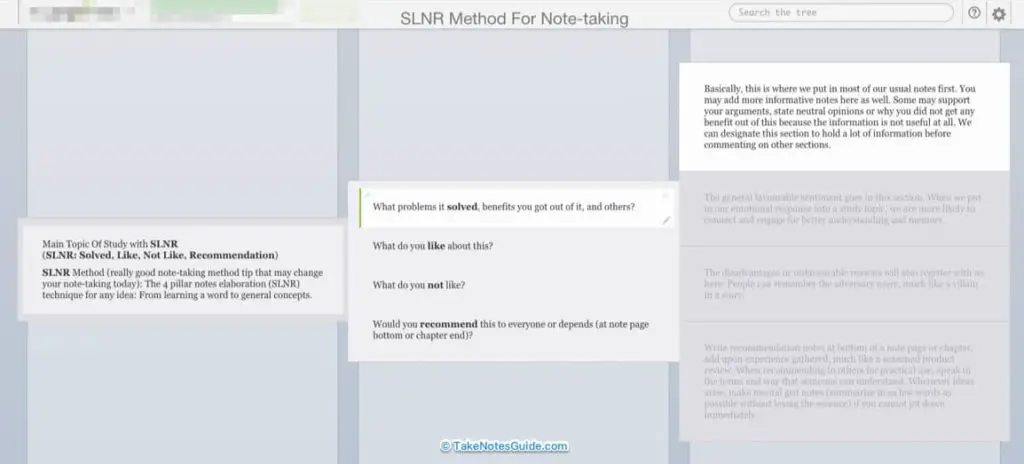
Tip: One can apply SLNR to writing helpful reviews for improvements and decision-making. Alternatively, those who had experience writing objectively and fairly competent reviews (Non-SLNR format) on popular platforms may write their notes in a similar fashion for fun and creativity.
If you just want to learn an actionable note-taking method fast, then pick this (SLNR) and see how it goes for you!
Conclusion
Moving forward in life, one may choose to learn knowledge that has more lasting value; Our human life is limited, so seek what can be beneficial beyond.

Is it possible to ask questions like you are the original author writing the book and coming out with their studying materials for students? What and how relevant or relatable questions can you think of, and answer for the topic? How many of the questions and answers may bring practical lasting benefit? Can we learn to compare objectively and be logically reasonable in any debates or conversations without resorting to personal insults and attacks or refusal to acknowledge self faults and flaws?
Be kind to others and good luck with your note-taking endeavors!
Related Questions
Are there more tips on asking questions for note-taking?
Please read on What-ifs, H4W, and What next. Moreover, it is also possible to create your questions and notes answers in online quiz formats such as Memrise and this Focus Note-taking Quiz.
Is there a short course to help me pass exams?
After discovering and going through this Udemy course (Amazing 30 minutes Study Skill – Pass Exams Without Revision) after I published this post, while I do not share the method here, however, it does make good sense why it can work. So I ask you, my readers, to consider a fair chance to help yourself with this course method. Also, I like this method of study without the dreaded traditional lengthy revisions or study reviews. Sometimes, the best method may be the simplest or most direct one, though not everyone can recognize the potential value in it. I am inclined to recommend this course method for all serious note-takers and studying students. In the course, the author goes into the specifics of the method that provides a practical routine. I believe if everyone is familiar with this method to start with, then their chances of passing examinations that require memorizing a lot of information will be much easier. The simplicity and brevity of the course content may not appeal to everyone, nor the longer than necessary videos length to deliver the short main points. However, he did add a research tip and a cluster memory method (Good) to enhance the course value. And I have to inform readers that this method does not substitute the hands-on practice required for certain subjects such as mathematics, programming, and drawing. Be sure to put this method to good use if you do purchase it and remember there is Udemy refund policy for unhappy customers.
Is there a resource for writers?

Writing prompt deck
